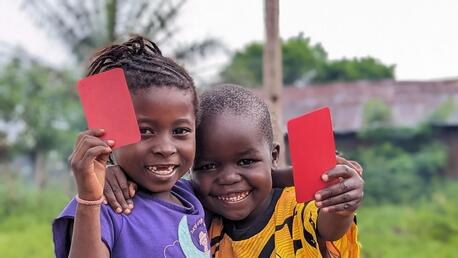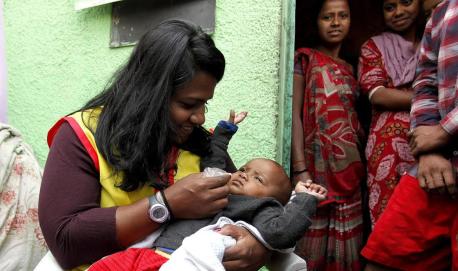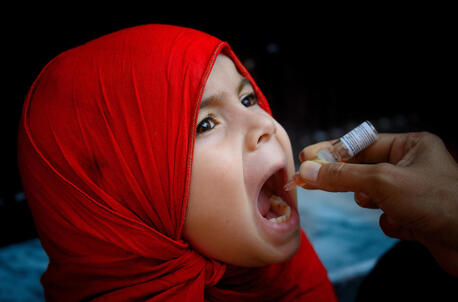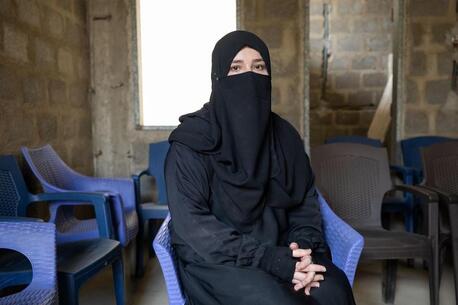
Community Health Workers on the Front Lines in the Fight Against Polio
UNICEF-supported community health workers play a key role as Pakistan strives for a polio-free future for every child.
For a young mother, becoming a polio vaccinator sparked a transformation
Reshma* was 28 years old when her husband passed away. Married young, she had never worked outside the family home in Karachi, Pakistan. Faced with the daunting task of providing for her daughters — Fizza, 13, Saba, 11, and Eesha, 9 — on her own, she moved her family into her mother’s house. Her father had passed away in 2001, and the family relied on the meager savings he had left behind.
“I never thought our lives would change in this way,” Reshma says, looking back.
Her path from despair to becoming a community health worker is a tale of resilience and determination. Today, she not only protects children from polio but also challenges societal norms, shattering expectations and inspiring her daughters to dream big.
Reshma’s childhood was shrouded in poverty. She left school early and was determined to educate her daughters and give them a good life. To help realize this dream, in 2018, she discreetly applied for a community health worker position at her local Community Polio Vaccination Program.
In our Pathan culture, women are expected to refrain from even answering the door, so going out for work was viewed as utterly disgraceful.
For the first six months, going door to door convincing mothers to vaccinate their children, Reshma didn’t tell a soul about her new job, not even her mother. She explains, "In our Pathan culture, women are expected to refrain from even answering the door, so going out for work was viewed as utterly disgraceful."
On her third day working in Karachi, Reshma was distraught to learn of a recent shooting in the area targeting health workers. “I was very scared and overwhelmed in that first month. I used to come home and cry every day,” she recalls. She confided in her program supervisor, who arranged for security to accompany her on her rounds in the neighborhood.
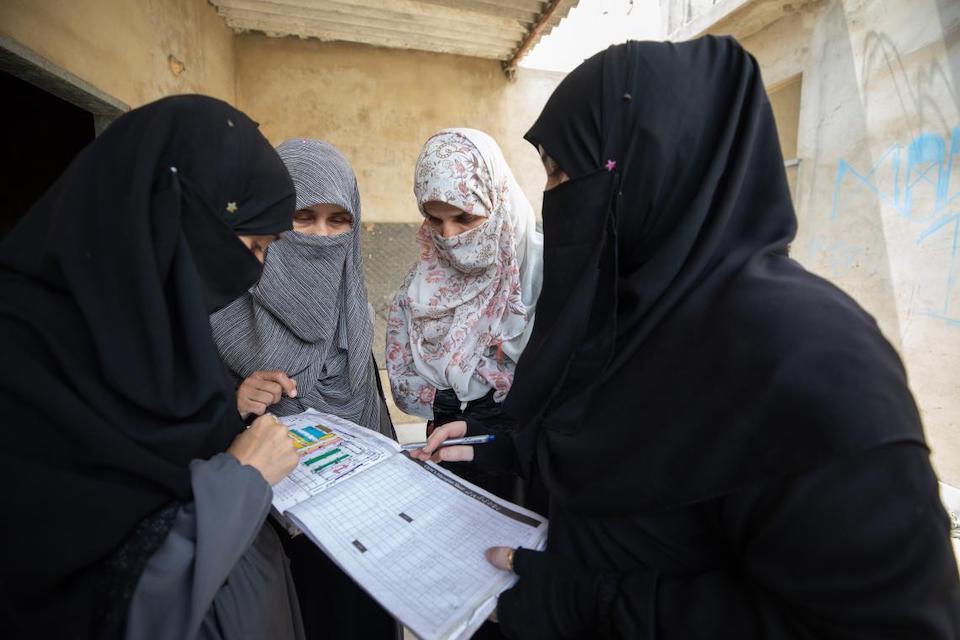
Countering vaccine misinformation
Despite the underlying risks and fears, Reshma continued with her work, fighting deeply rooted misconceptions, educating families and making sure children received the polio vaccine. After less than a year on the job, Reshma was promoted to supervisor, managing a team of three health workers who collectively covered 1,174 households.
Their mission to counter vaccine misinformation among deniers and hardliners is a "muqabla" [challenge], Reshma says.
"Families who were skeptical would show us videos claiming children's deaths after vaccination. We countered by presenting videos featuring endorsements from doctors and religious leaders who assured the vaccine's safety."
Her perseverance paid off. Thanks to the efforts of Reshma and other health workers, the number of households in the area refusing to administer vaccines for their children dropped to just five families.
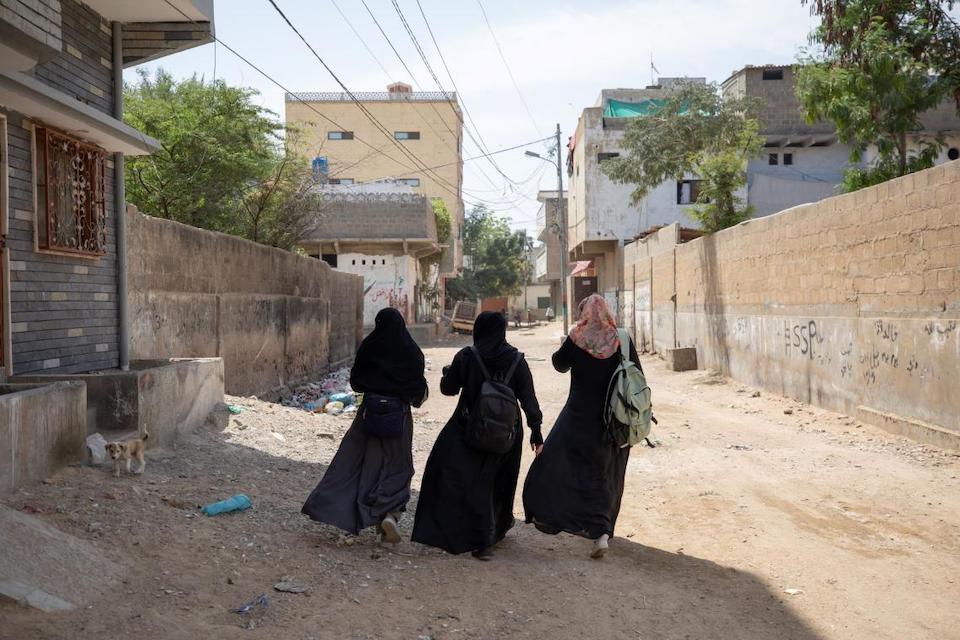
Building trust, one household at a time
The team had to use innovative strategies to gain the trust of local families. "There was one household, with six children, that had always refused the vaccine," Reshma recalls. "During one of our visits, we discovered they were hosting a wedding party." The mother requested that Reshma apply henna to her hands.
"I told her I would do it only if she allowed us to vaccinate her children, and she agreed!" Reshma says. "I still had other houses to visit on my rounds, but I knew that by doing this, I would build a bond with her, and she would trust me. Our ultimate goal is to vaccinate all children, and we find any means necessary to achieve that."
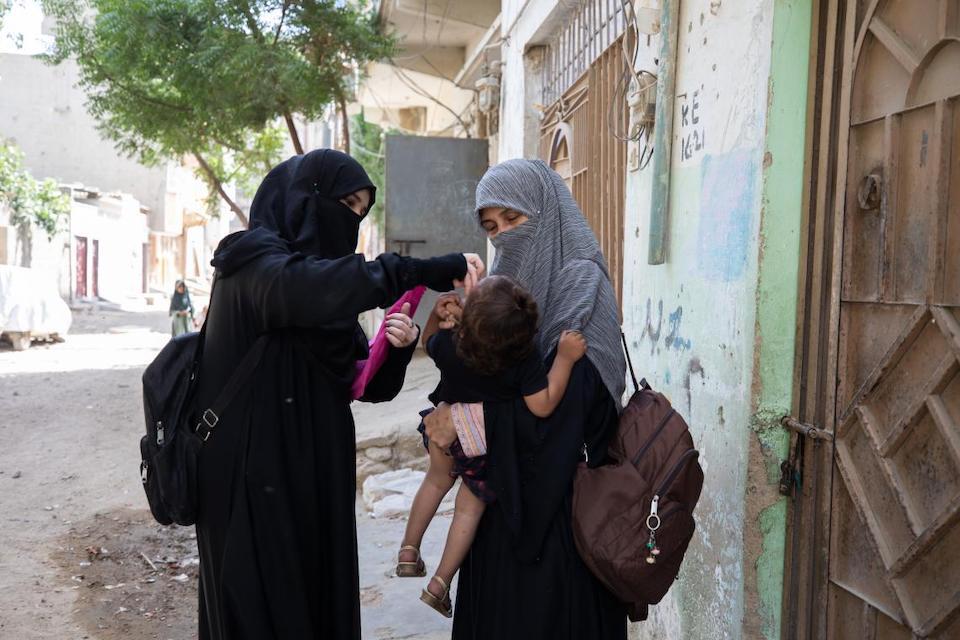
Reshma remarried recently. But she has no intention of quitting her job.
She explains, "My life has been completely transformed since I started working. I used to feel almost mute, but now I talk to strangers without hesitation. I have developed a sense of pride and self-sufficiency because I provided for myself and my children."
My life has been completely transformed since I started working. I used to feel almost mute, but now I talk to strangers without hesitation.
Reshma covers her daughters' school and college fees with pride. Her daughters have witnessed their mother's transformation and now harbor dreams of their own. Fizza aspires to join the police force, while Saba and Eesha dream of becoming a lawyer and a doctor.
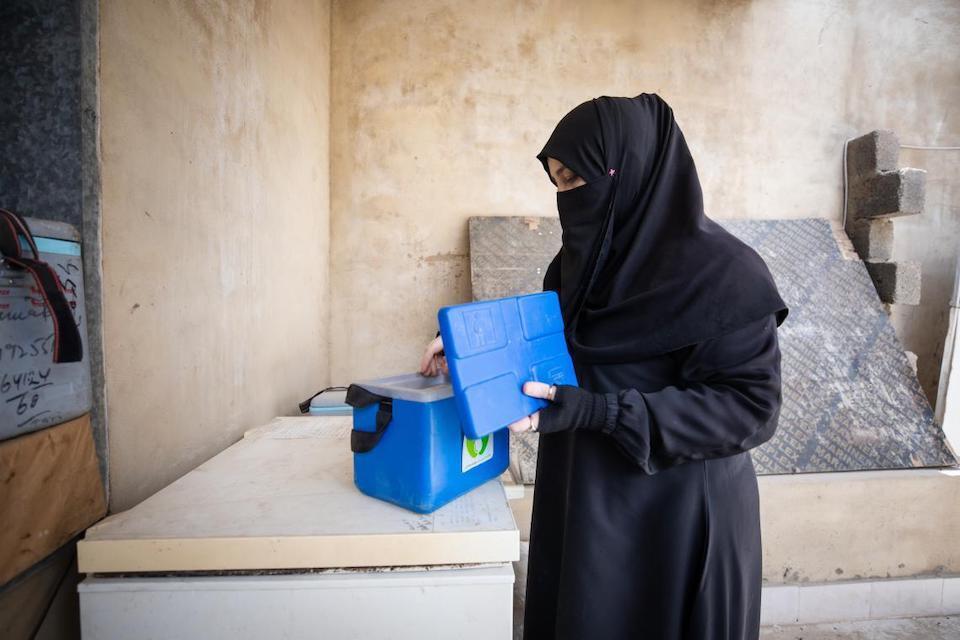
UNICEF and Rotary International are working together in the fight to end polio forever. Since UNICEF and Rotary began their partnership in 1988, both organizations, as members of the Global Polio Eradication Initiative, have dramatically decreased polio cases by 99.9 percent.
Women are at the forefront of polio eradication efforts globally. Female vaccinators are crucial to building community trust and reaching all children, especially in communities where cultural norms prevent men from entering households other than their own. With the fight to end polio in its last mile, frontline workers like Reshma and UNICEF's network of global partners play a key role in eradicating this disease for every child, everywhere.
UNICEF won't stop protecting children. Your contribution can make a difference. Please donate.
* Reshma's name has been changed to protect her privacy.
This story originally appeared on UNICEF.org
